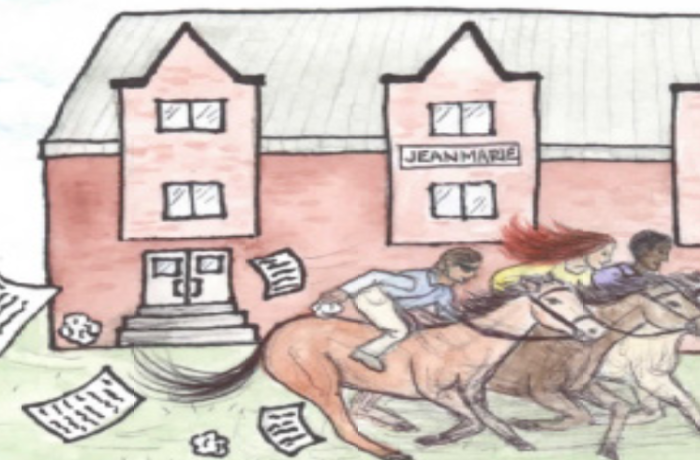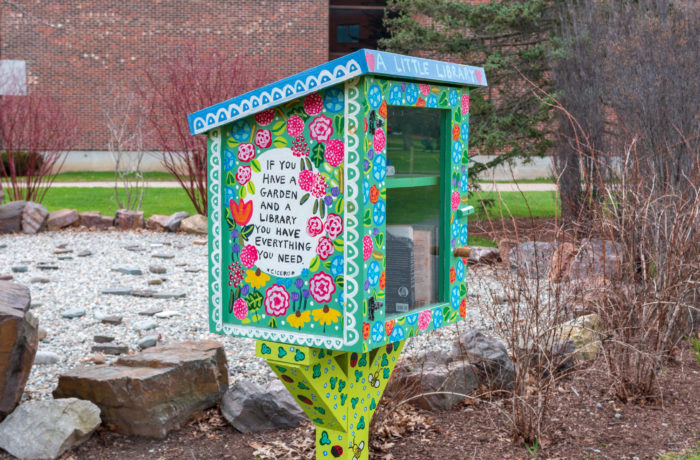By Shelbie Osak
Dr. Teng Biao, named “Persons of the Year in Asia” by Newsweek in 2005, and Chinese human rights lawyer, spoke to faculty and students on Sept. 27 at the Roy Room sharing his story of arrests, kidnaps, torture, and current exile in China. In China, there are approximately 300,000 lawyers; Teng Biao is one of only 30 human rights lawyers.
Before he started his life in exile, Teng had served as a defense lawyer for many years on high-profile human rights cases in China. As a result, he was also kidnapped and tortured by the Chinese government l twice. “In the middle of the night, they covered me in a black hood, handcuffed me, and threw me in a little black car, took me to a black jail, and locked me in a little black room,” Teng said. Teng was kept was solitary confinement where he was physically and mentally tortured. Teng never knew where he was, nor did his family. The first time for two days; the second, for 70 days. “They told me to sit facing a wall and not to move or else I would’ve gotten beaten,” said Teng. “It’s a terrible feeling … you’re mentally broken, and you think anything could happen.”
While speaking on campus, Teng mentioned that the Chinese Communist Party has been acting against human nature and that is why human rights activists sacrifice so much to fight against the Communist Party. “Wherever or whenever human dignity prevails, tyranny is defeated,” said Teng.
Despite the warnings and beatings, Dr. Teng continued to protest against the Chinese authorities, taking on legal cases and writing articles detailing human rights abuses. His family soon came under scrutiny from the Chinese government, too. Teng fled the country in 2014, but his wife and two daughters were detained by government officials at the airport and not permitted to leave China. “I feared for the people I love,” said Teng. For a year, he was separated from his family, but after a year, his wife and daughters escaped China using a secret tunnel and joined Teng in America.
Teng was banned from teaching at his university – University of Politics and Law in Beijing. He is a prominent member of the Weiquan, or “rights defenders” movement, a loosely knit coalition of Chinese lawyers and activists who tackle cases related to the environment, religious freedom, and freedom of speech and the press.
He wasn’t the only one, another activist and Nobel Peace Prize laureate, Liu Xiaobo, was detained in solitary confinement for 11 years until his death in July. He was an anti-communist, writer and poet who was involved in campaigns to end Communist single-party rule. “Freedom of speech is very limited in China currently, especially in the newspaper and traditional media because they are being censored by the government,” said Zichen “Chuck” Qian ‘20, an international student from China who attended Biao’s talk “We don’t have any of the social media you guys [United States] have including Google because they are too opinionated.”
“I didn’t know about things like human rights lawyers being arrested and kidnapped.” Qian said, adding that he is afraid to take the book Tombstone home because it contained material about the Chinese famine which is banned by Chinese authorities.
Despite the strict censorship, Quian said he also believes China is a very safe country. “Sometimes I feel it is more dangerous here [United States] because of how much freedom there is. For one example, the Las Vegas shooting. We aren’t allowed to have guns in China,” said Qian.
Professor Rowena He of the history department, who invited Biao to speak at the campus, said she also wants to spread awareness of human rights abuses in China. “We must stay aware and spread the message because we have the power of the powerless,” she said, adding that it was beautiful to see everyone at the event. “There can be citizenship without democracy, but there cannot be democracy without citizen participation.” She said she wants to spread this message to whomever she can: “Please do not take things for granted, because the rights that you are born with are things that we have been fighting for, for generations and still do not get.”
Teng said he is optimistic that Chinese people will in the future enjoy a liberal democracy and the rule of law because the pursuit of human dignity and freedom is undefeatable. In spite of all his research and struggles, he wrote a book on the human rights movement in China. “I am honored that my courage, my struggle, my suffering has been a small part of a great cause.”


